
The new patented process results in uniform, scalable production and the ability to deliver cell cargo similar to natural exosomes/extracellular vesicles.

The new patented process results in uniform, scalable production and the ability to deliver cell cargo similar to natural exosomes/extracellular vesicles.
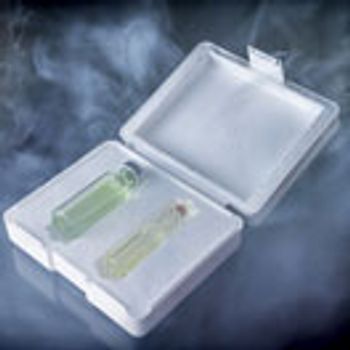
More sustainable and functional packaging protects temperature-sensitive drugs.

Single-use solutions continue to grow in popularity, largely as a result of the cost and time efficiencies they can afford biopharma companies.
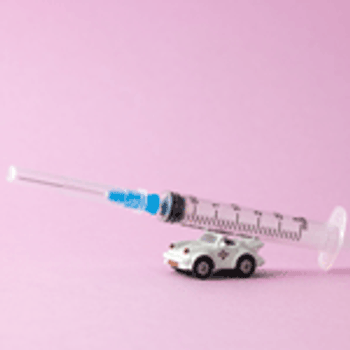
As a result of the rising use and development of biological drugs, the biopharma industry is witnessing an increase in the adoption of prefilled syringes.

As the coronavirus pandemic unfolds, the bio/pharma industry must practice science over hype.

Pre-clinical immunization studies of iBio’s SARS-CoV-2 VLP candidates are being performed by Texas A&M.

AzarGen’s biosimilar, made in iBio’s plant-based system, will be compared to the original molecule in pre-clinical studies.

Enhancements to Augury’s AI-based machine health platform include new capabilities and collaboration tools for personnel working remotely.
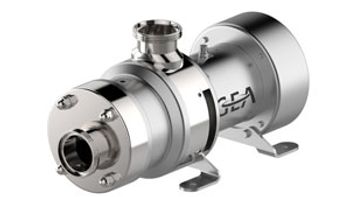
GEA began supplying the new GEA Hilge Novatwin hygienic twin-screw pump line.

Emergent BioSolutions will help develop and manufacture an oral vaccine candidate and will develop plasma-based antibody therapeutics.

FDA postpones routine domestic facility inspections due to the COVID-19 pandemic.

The new BIOSTAT STR Generation 3 with BIOBRAIN bioproduction platform offers process intensification with automated feed and bleed and integrated cell retention functionality.

The technology enables the rapid production of large numbers of recombinant antibodies at 80-mL scale.

Better understanding and control of cell behavior is yielding benefits, upstream and beyond.
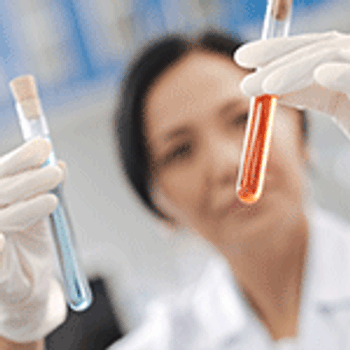
The future of raw material sourcing for mAb production may lay in the sustainability of the source and the added benefits of newer technologies.

Ensuring the quality of data in process monitoring and control systems starts in process development phases.

Single-use and modular systems will meet demand for rapid implementation at different scales.

The expansion gives the company diversified capacity running cell production lines featuring Sartorius-brand 2000-L disposable bioreactors and now GE-brand 2000-L single-use bioreactors.

The company presented data on its G2 glycosylation studies at the 15th European Conference on Fungal Genetics in Rome on Feb. 19, 2020.

The partnership will begin in the second half of 2020.
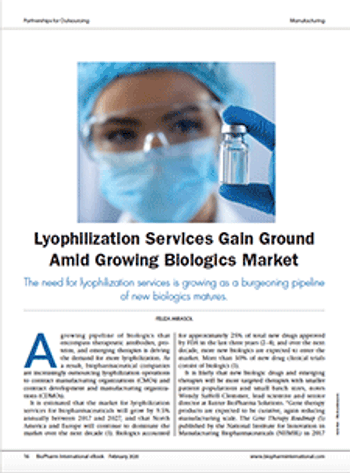
The need for lyophilization services is growing as a burgeoning pipeline of new biologics matures.

How to adopt win-win strategies and understand quality agreements for complying with cGMP when building strategic relationships with pharmaceutical contract research organizations.

Technology and capacity investments create opportunities in the cell and gene therapy arena for CDMOs and biopharma alike.
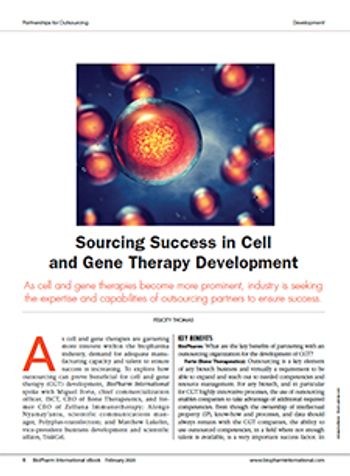
As cell and gene therapies become more prominent, industry is seeking the expertise and capabilities of outsourcing partners to ensure success.

The company has said that all three of its operating sites in China started back up on Feb. 12 and that it is closely monitoring the outbreak.